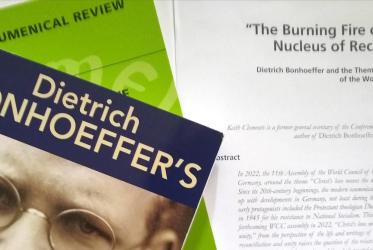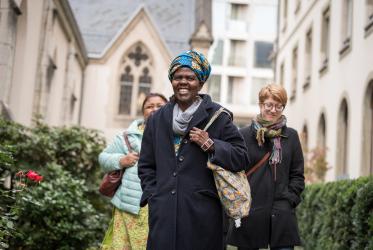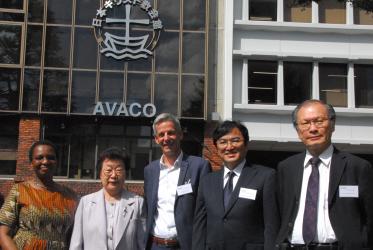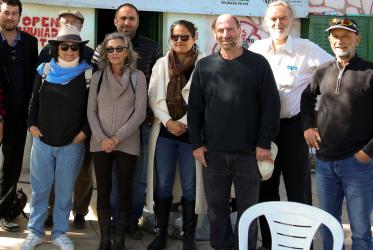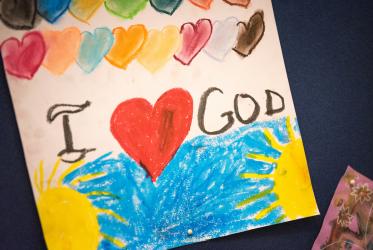Displaying 1 - 20 of 63
WCC executive committee maps future with hope in uncertain times
19 November 2020
WCC Executive Committee meets with eye toward busy future
20 November 2019
Churches in southern Africa stand against violence, xenophobia
10 October 2019
In Japan, theologians reflect on today’s global manifestations of racism
18 September 2019
Rabbis walk through Hebron in solidarity
07 February 2019
WCC Executive Committee envisions future for one ecumenical movement
08 November 2018
“Empower our pilgrimage through love”
07 November 2018
WCC supports UN petition from French Polynesia
07 November 2018
Looking back and ahead
31 October 2018
#WCC70: Nathan Söderblom, ecumenical pioneer
29 August 2018

